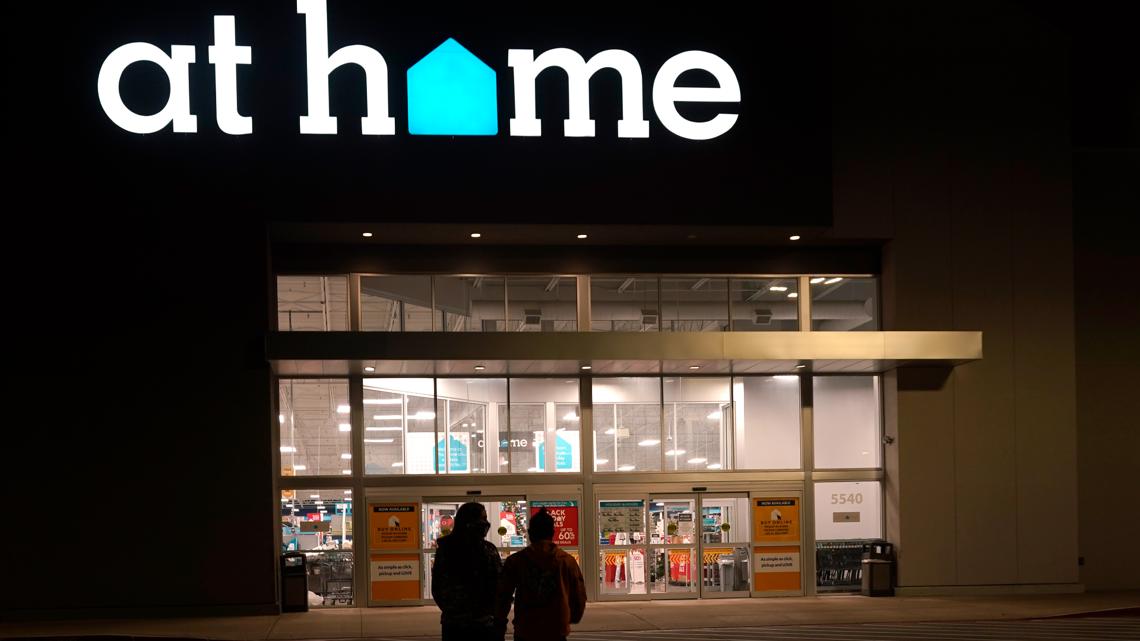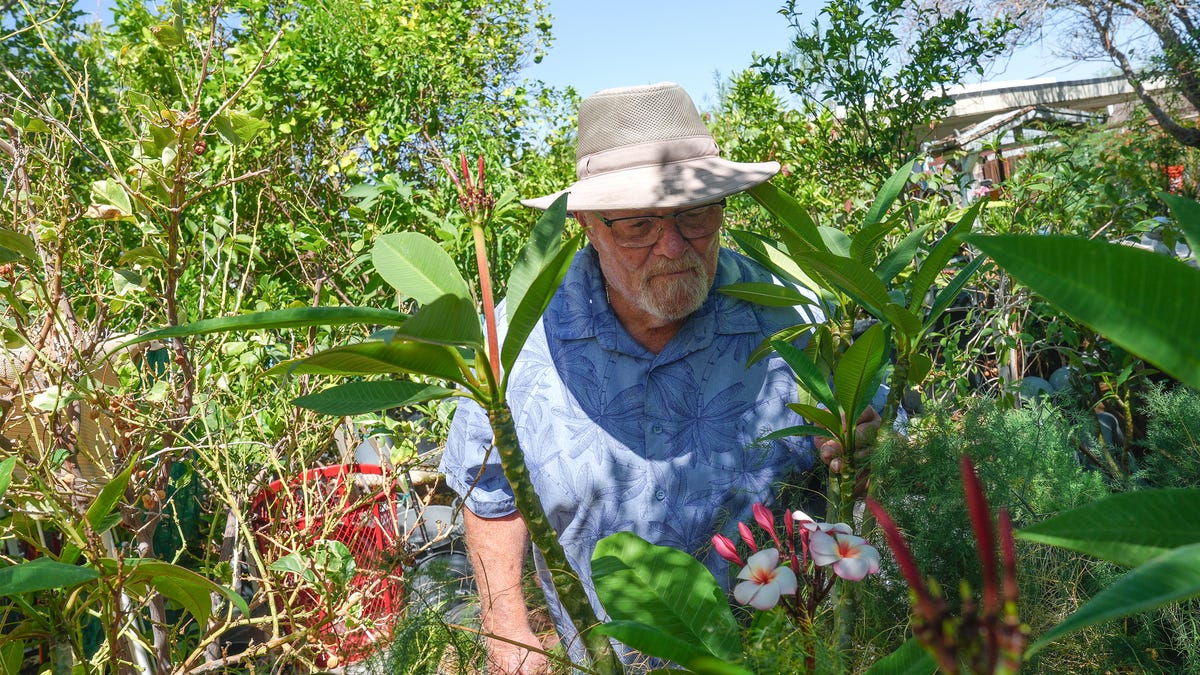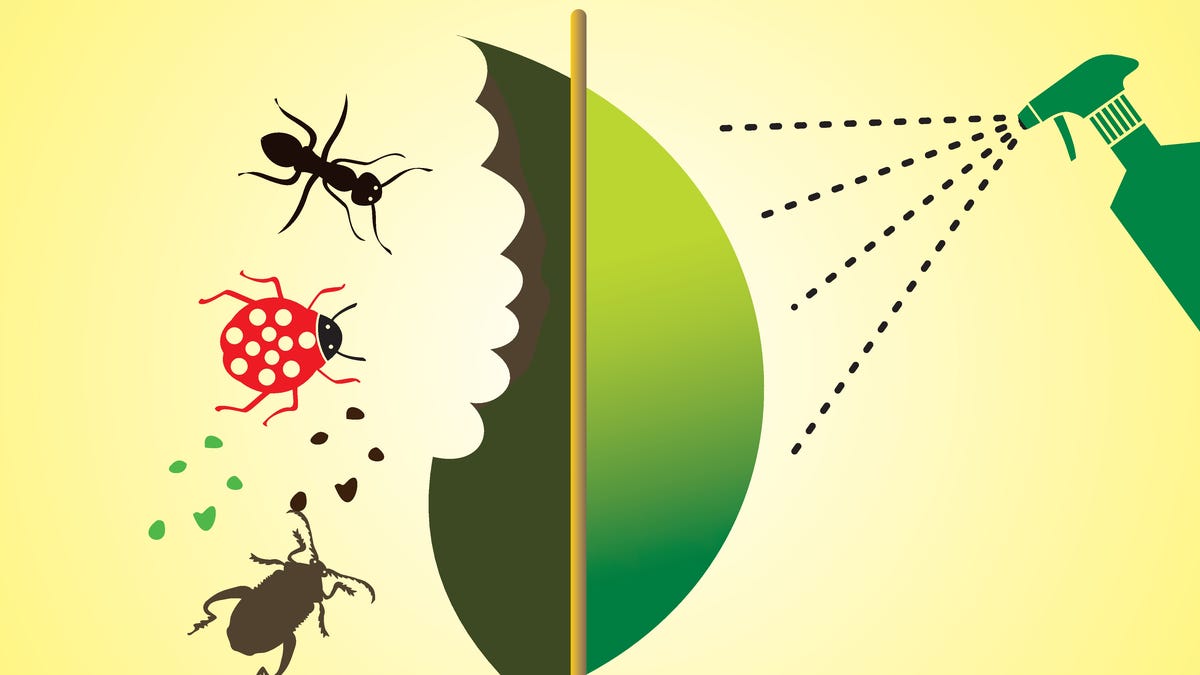Don’t discard them.
And, I’m not talking about table scraps in this case.
Even though you may have been picking your crops throughout the year when they were ripe, the Fall season is usually recognized as the farming and gardening harvest season.
This is the time to finish picking your carrots, squash, beets, and rutabaga. It’s also time to ask yourself some tough questions: Why did I plant so many vegetables? What am I going to do with all this extra food? Why did I plant rutabaga in the first place? Why is it getting dark so early? What happened to the Padres?
Clarence Schmidt
(Courtesy photo)
But some excess plantings are intentional.
It’s easy to get excited and carried away when it’s planting season. Most of those 10,000 varieties of tomatoes were all so tempting. Just planting 20 packs of seeds provided me with enough tomatoes that could feed half of Poway until the year 2525.
Then you slap your forehead and realize…I could have had a V8. No, not a car. It’s a tomato drink that you could have made yourself, bottled, and sold to Vons. Actually, it doesn’t quite work that way, but your heart would have been in the right place.
My overabundance, surplus, and not to mention, leftovers go to extended family members, neighbors, the elderly, and community food donation programs.
As a volunteer for many years through my church, I “rescue” a wide variety of food, including fresh fruits and vegetables. While we pick up food donations from local grocery stores, that oftentimes includes fresh produce; not just canned or boxed goods.
Occasionally, I see people put their excess citrus and avocadoes curbside with a sign for people to help themselves. Very thoughtful.
Every year I grow pumpkins and give them all away in October. This year I distributed 75 pumpkins that I set out in my front yard for any friend, neighbor, or visitor to take. Of course, I have always provided fast service, no matter how long it took. Shoplifters were welcome. Also, with every pumpkin I offered a free gopher. No takers this year…same as last year.
Finding someone to give free, fresh food is not difficult. Share some of your bounty with the elderly and shut-ins. It’s not always easy for an injured and wheelchair-bound individual to go to the store.
Of course, the food must be fresh, in good condition, edible, and not something rotten or partially rotten.
It needs to be something that you would eat too.
According to Foodfinders.org, “Our daily Food Rescue Program is unique from food banking because we rescue everything from dairy and bakery items to produce, deli, meats, and prepared items, along with canned and packaged goods. Our program is termed ‘rescue’ because we are keeping good, edible, perishable food from being lost to a landfill.” Food Finders is a community-based food rescue organization in Southern California, which serves as a conduit, between donors and people in need.
Food rescue means recovering healthy perishable foods and making fast deliveries to those in need. Feeding hungry people with donations of extra food is an important part of resource conservation.
Overage food can come from restaurants, grocers, corporate cafeterias, schools, special events, and organized community food drives.
Donations can be collected and delivered directly to missions, pantries, homeless shelters, senior programs, soup kitchens, childcare centers, and community centers where it is used to feed people who are disadvantaged and food insecure.
In California, that’s about 1 in 5, or 8.8 million people. According to Feeding San Diego, that’s 330,000 people in San Diego County.
Food banks are organizations that collect food from a variety of sources, and distribute it to hungry people through local service agencies. The California Association of Food Banks has a membership of 43 food banks. Their main programs include Farm to Family which works with growers and packers to provide fresh produce. Source: https://calrecycle.ca.gov/organics/food/donation.
Food donations are supported and encouraged by the federal Good Samaritan Food Donation Act and the California Health Code, so donors are protected from liability when donating to a non-profit.
Not all organizations will accept home fruit and vegetable donations. The San Diego Food Bank is unable to directly receive home produce donations. However, they do partner with Produce Good (citrus and avocado), 760-492-3467; The Food Bank also partners with Senior Gleaners. 619-633-9180 or at https://seniorsgleanerssdso.org/contact/
What’s a Gleaner? “For centuries, gleaners have collected food that would otherwise be wasted. The term originates from landowners leaving portions of their fields or crops for the poor to glean — collect bit by bit.” Their website states, “Our crews glean from as few as one or two backyard trees, orchards, and farms. If you have crops to donate, please contact us. You receive a receipt for tax deductions.”
If interested, watch Jeff Zevely’s entertaining segment on CBS at
https://www.cbs8.com/article/news/local/zevely-zone/senior-gleaners-pick-surplus-fruit-and-feed-san-
diegos-hungry/509-d355ec38-9074-4455-8327-d9aac71fd345.
For those of you who might think that collecting and distributing your remaining garden goods is a bit of an inconvenience, they have their own volunteer network that will go to local homes and small farms to harvest donated produce. They distribute their harvests to non-profit food distribution organizations like the Food Bank and Feeding San Diego.
The San Diego Food System Alliance lists local gleaning organizations at https://www.sdfsa.org/gleaning.
You can also volunteer with them. I’m not sure why they include the qualifier “senior.” The program is open to juniors, too. Even to sophomores and freshmen.
Another option is The Community Food Connection; 858-748-1875. Also, consider the Community Christian Service Agency; https://www.ccsasandiego.org; 858-274-2271.
Fruits and vegetables that are inedible can always be composted or simply added to your green waste bins.
This is the season for giving and only runs from November through October. Even small donations can make a big difference to those in need.
If you’ve noticed, I’ve spared you my vegetable jokes because…well, I didn’t have any. So, if you do, lettuce know.
Schmidt is a Poway resident with over 40 years of gardening experience.









